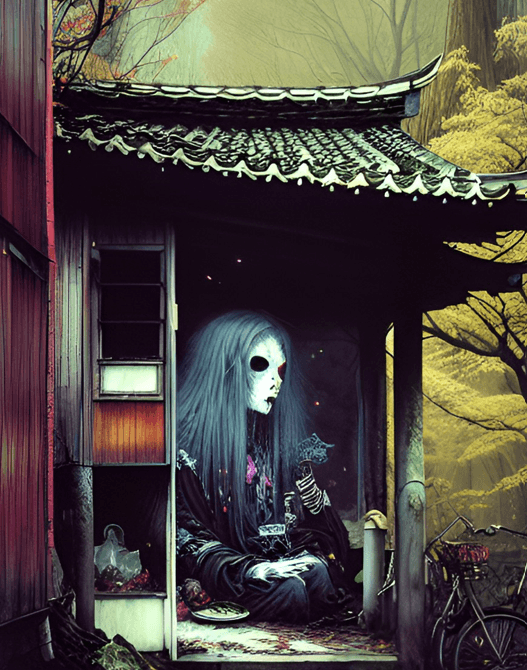Jikininki are human-eating supernatural beings that are a prevalent feature in Japanese mythology. They are classified as gaki, which are hungry ghosts that are cursed with an insatiable hunger that can never be satisfied.
In Japanese folklore, Jikininki are some of the most feared and reviled of all gaki, as they consume not only the flesh of the dead but also their emotions and memories. In this article, we will explore the origins, appearance, behavior, and significance of Jikininki in Japanese mythology.
MORE LIKE THIS: Tsuchigumo: The monstrous spider Yokai
Origins of Jikininki
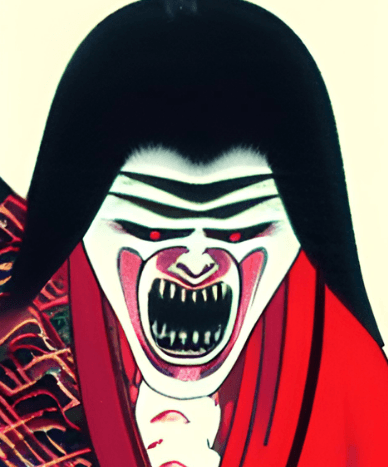
According to legend, Jikininki were once human beings who lived sinful and selfish lives. After their death, they were transformed into these horrific creatures as punishment for their misdeeds. In some versions of the myth, they are said to be the spirits of monks who have failed to follow the strict code of conduct expected of them.
One of the most well-known illustrations of the Jikininki is the “Hyakki Yagyo Emaki“, a picture scroll that depicts various monsters and supernatural beings from Japanese folklore. The scroll was created in the 16th century, during the Edo period, and features illustrations of Jikininki alongside other gaki and yokai.
Appearance of Jikininki
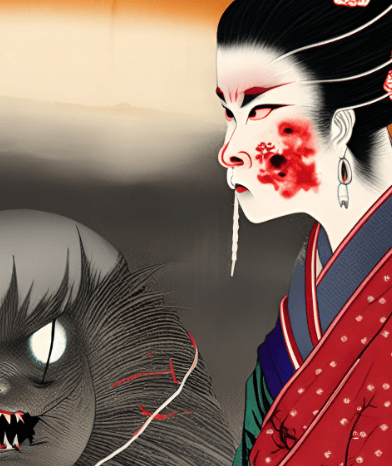
Jikininki are generally depicted as ghostly figures that have skeletal bodies with glowing eyes. They are seen as horrific creatures that are to be feared, with elongated, almost serpentine bodies that can move with supernatural speed and agility. Their appearance is often described as ghastly, with sharp teeth and elongated limbs that enable them to hunt down their prey with ease.
Some versions of the myth describe Jikininki as having a more human-like appearance, with skin that is rotted and decayed. These creatures are said to be able to take on a more human form in order to blend in with the living, making them even more difficult to spot and avoid.
Behavior of Jikininki
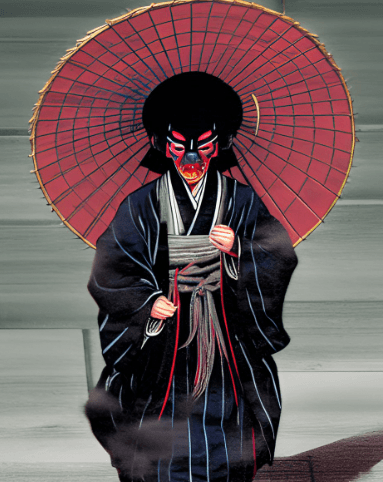
Jikininki are known to feed on the flesh of the dead, as well as their emotions and memories. They are said to haunt graveyards and other places of death, waiting for the newly deceased to arrive. When a person dies, their spirit leaves their body and becomes vulnerable to an attack by Jikininki. They are also believed to be able to consume a person’s memories and emotions, leaving the spirit lost and alone in the afterlife.
Despite their terrifying behavior, there are some stories in which Jikininki are portrayed as sympathetic characters. In these tales, they are often shown to be tormented by their own curse, desperate to break free of their eternal hunger and find redemption. In some interpretations, they are even able to achieve this by consuming the flesh of a particularly virtuous person, which allows them to transcend their curse and move on to a better existence.
Significance of Jikininki
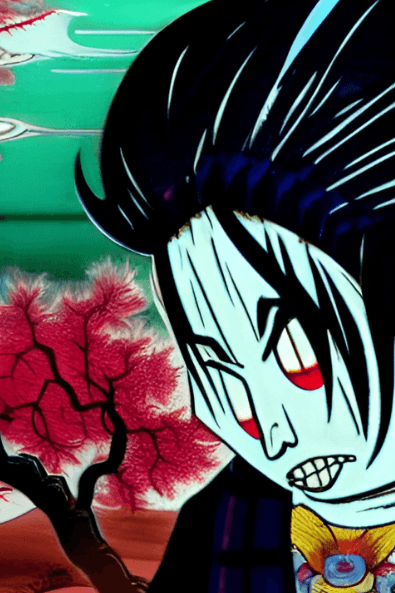
The legend of the Jikininki has significant cultural and spiritual importance in Japan. These spirits serve as a warning about the dangers of selfish and sinful behavior, and the consequences that can come from living a life that is not in line with one’s moral obligations. The Jikininki represent the consequences of placing one’s own desires ahead of the needs of others, and their fate serves as a cautionary tale about the dangers of succumbing to one’s darker impulses.
In Japanese folklore, the belief in Jikininki is closely tied to Buddhist teachings about karma and the afterlife. In Buddhist philosophy, it is believed that one’s actions in life will have consequences in the afterlife, and that these consequences can be positive or negative, depending on one’s behavior. The idea of the Jikininki reinforces the importance of leading a virtuous and ethical life, as the consequences of one’s actions can have a profound impact on both the living and the dead.
The concept of Jikininki can also be seen in popular culture in Japan, being featured in a number of books, films, and television shows, often serving as haunting antagonists that prey on unsuspecting victims.
Similar Mythical Beings to the Jikininki
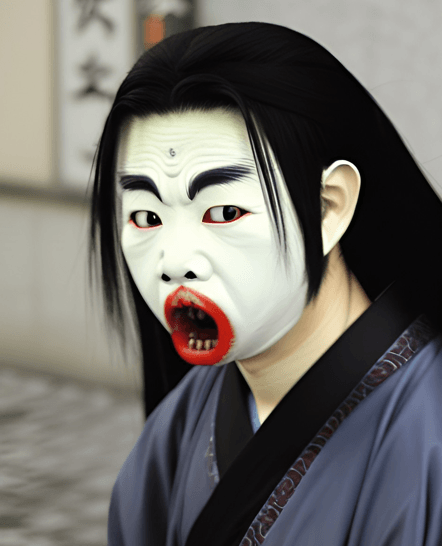
In Japanese mythology, the Jikininki belong to a group of supernatural beings known as gaki, who are cursed with insatiable hunger and are doomed to wander the earth as ghosts.
There are other gaki within Japanese folklore that are similar to Jikininki, such as the Ubume, which is a ghostly woman who appears after death to care for her child, and the Oni, which are monstrous creatures that are said to dwell in the mountains and prey on humans.
Similar beings can also be found in various other mythologies and cultures around the world, such as the Aswang in Filipino mythology – shape-shifting creatures that prey on humans – and the Vetala in Hindu mythology, which are vampiric spirits that possess corpses and feed on the living.
Get in Touch
Did you enjoy reading about the Jikininki? Have you or anybody that you know had any first hand experiences with these human-eating spirits? Let us know in the comment section below!
For enquiries, contact me at richard@mythologyplanet.com
For more about the Jikininki, check out the YouTube video below by SA Reader.
